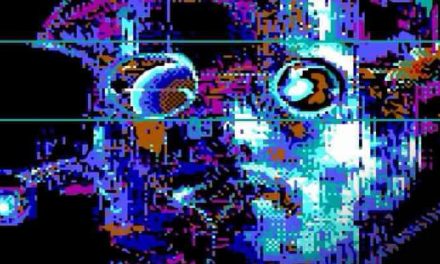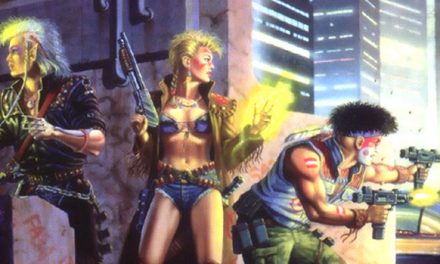“Get a job in the private sector” his friends had told him. “Finally get paid for your skill set.” It’s not that working for the Allied German States was a bad gig, but with how factionalized the region had become, particularly with the resurgence of anarch sects and city-states, the writing was on the wall that the loose coalition wouldn’t remain solvent for long. It would be better to look for a new gig before his coworkers flooded the job market.
With a background in “material acquisitions,” which could be more aptly described as “sanctioned extrajudicial information gathering,” it wasn’t long before he found a new home at the newest European branch of Securitech International, an R&D arm of Renraku, focusing on finding security flaws of the megacorp’s latest flagship products.
Approaching each project with a methodical and analytical process, he excelled at discovering “out of the box” means to break high-end security devices. Some had an unknown vulnerability to certain RF emissions, others could be countered by injecting a 30% concentration of hydrogen bromide into the control mechanism. He was good at his job, and dutifully wrote report after report, made presentation after presentation, impressing his superiors with his findings.
The move to Prague had him worried at first, but he liked his coworkers and, all of them being expats like himself, they shared a common bond, no matter where they once called home. Though none of them were at liberty to discuss the specifics of their former jobs, there was a unity in that shared redacted history.
Late one evening, he and a coworker finally cracked one of Renraku’s highest-rated security systems, designed to protect the most important physical documents. As connected as the wired, then wireless, world had become, some things were still handled with good old pen and ink, never to be digitized. For those kinds of agreements, projects, and secrets, the reportedly impenetrable case developed by Renraku fit the bill to a T. Reportedly, because after weeks of tinkering he found a weakness that would let an unauthorized person open the case.
His attack took work and precision, but the fact that it was possible was enough for him to make the midnight call to his boss, Erik.
“That is wonderful news – we’ve had high hopes you could crack that one,” Erik said. “Go home and get some rest, you deserve it.”
Instead he went out to celebrate, spending the early morning in Prague’s famous club scene – a far cry from his usual routine, but he knew big things would be coming his way and wanted to live it up a little. After hours of drinks, dancing, and more than a little experimentation with illicit substances, he ended up in an urgent care facility, feeling like death.
Rehydrated and detoxed, he went in to work late, intending to apologize, only to find the place swept clean – there were no desks, no chairs, no terminals, no decorations on the wall. It was as if his entire workplace evaporated overnight. Everything was gone, except an assassin who tried to garrote him from behind. Gaining the upper hand, he threw the lithe attacker out the seventh-floor window and ran, calling every number in his directory.
None of his co-workers picked up the phone. His boss’ number was disconnected. The main office line held dead air. Struggling to find his bearings he bought a soycaf at a small stand nearby – or he would have had his accounts not been empty, as if they never existed. Panicking, he tried to make some sense of the situation.
“You made it out?” a familiar voice called from the crowd. “Thank the gods!” Turning, he saw Erik waving at him furtively from the shadowed stoop of a vacant building.
“What’s going on?” he asked, shielded from the passing daytime crowd by the deep alcove. “The office, everything, it’s all gone.” Erik merely nodded, as if that answered everything.
“You should have taken my advice – you should have gone home,” his boss sneered with an unexpected sneer. “You gave us the last piece of the puzzle and it’s time to move on to phase two.”
Reacting without conscious thought, he blocked the sudden attempted stab, his hand right around Erik’s wrist. Two swift jerks upward plunged the dagger into Erik’s abdomen before he took off running. “You’re so dead,” Erik’s bloody laugh followed him. “So dead.”
“Sir, if you don’t calm down I will have to get security involved,” the polite but firm receptionist told him, her English tinted with a slight Swiss accent. “I say again, Securitech International has never maintained an office in Hungary. Your credentials aren’t valid in our system and we have no record of any of the coworker names you have given us.”
He walked out of the SI headquarters in Brussels dejected and afraid – if he hadn’t actually been working for an arm of the security firm, just who had he been doing research for? He could either find answers or start running, and the former option would likely end with his name on a tombstone. Run it was.
“Welcome to the Port of Seattle at Bremerton,” the androgynous ship attendant greeted him as he stepped onto UCAS soil for the first time, nearly thirty hours later.
Maybe it was time to put his skills on the open market, while avoiding any trace of his European former life.
Header photograph by Alex Knight, character story inspired by the 2012 movie “Erased”















